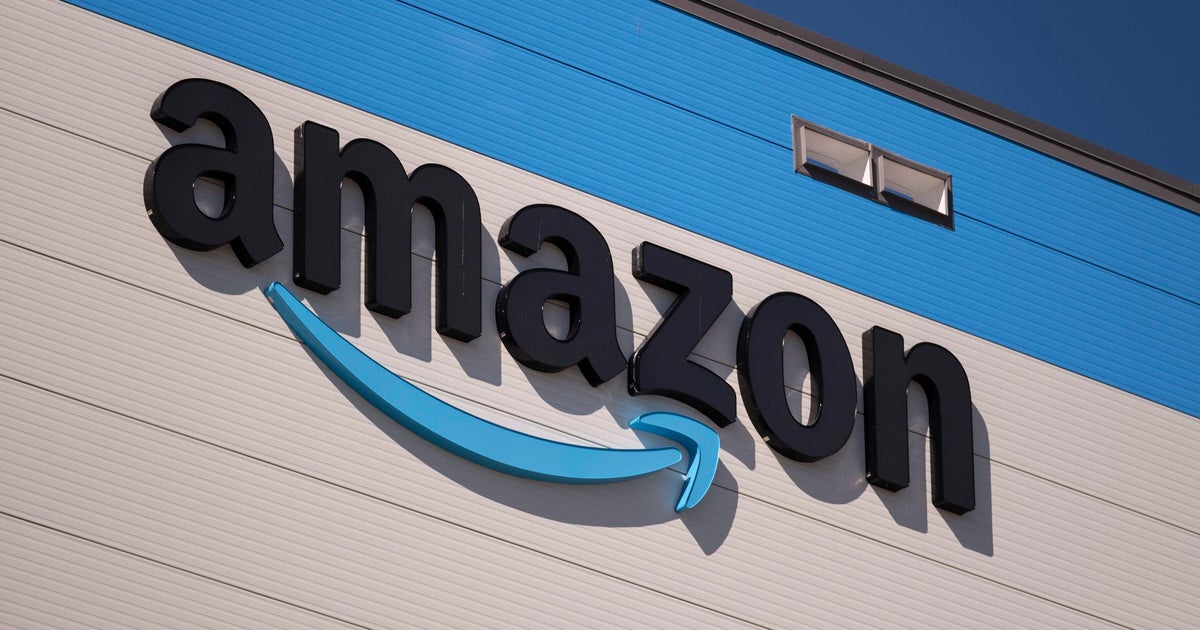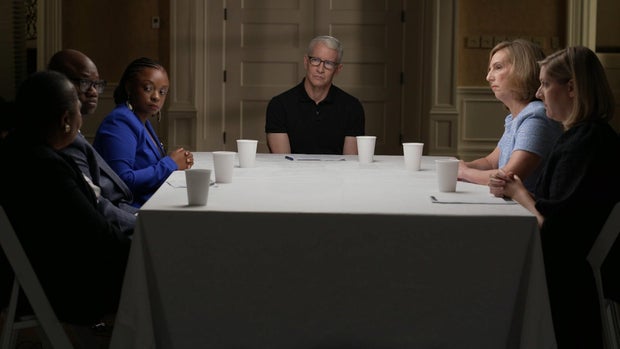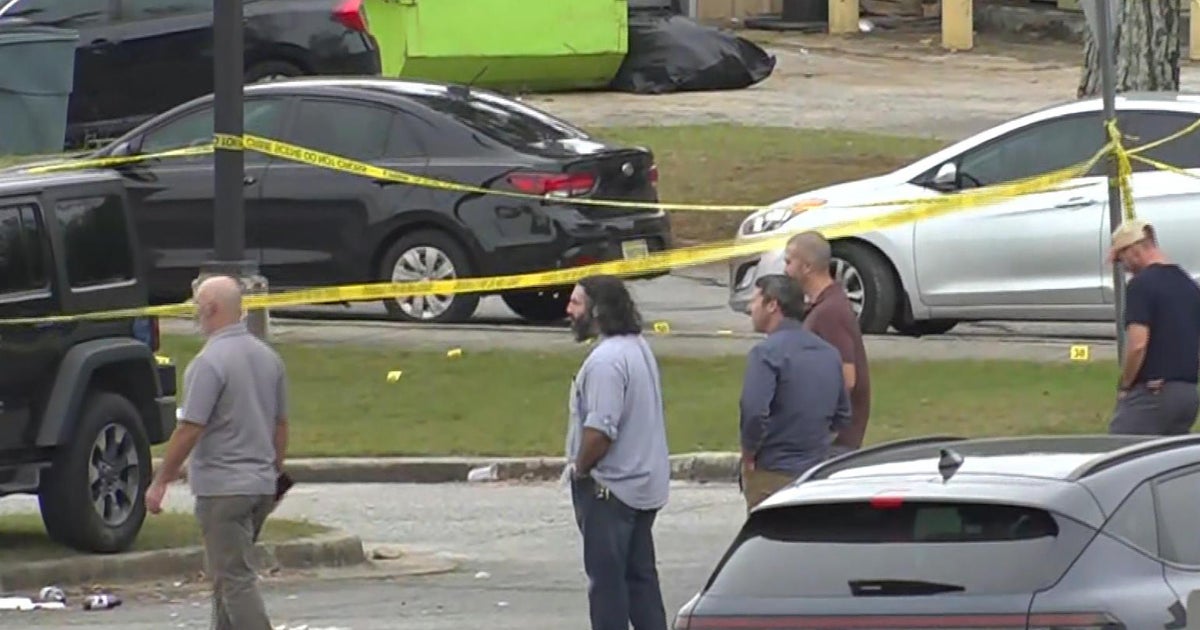CBS News
Last known slave ship to arrive in the U.S. is a decayed “crime scene” that should stay underwater, experts say

The last known U.S. slave ship is too “broken” and decayed to be extracted from the murky waters of the Alabama Gulf Coast without being dismembered, a task force of archaeologists, engineers and historians announced following a yearslong investigation.
The task force headed by the Alabama Historical Commission said Thursday that the Clotilda, the last ship known to transport enslaved Africans to the United States, had been broken in half by a large vessel and severely eroded by bacteria. The 500-page report says that the “responsible” way to memorialize the ship is to protect it under the water where it was discovered in 2019.
“There is no other site in the world that presents such physical evidence as the Clotilda,” said James Delgado, a lead marine archeologist on the investigation who said the priority was preserving that physical evidence. “The Clotilda is the scene of the crime, so everything we did was in that crime scene investigation manner.”
The wooden schooner at the heart of the investigation was commissioned in 1860 by Timothy Meaher, one year before the Confederacy was created and decades after the importation of slaves was made punishable by death in 1808. Captained by William Foster, the ship traveled to West Africa and illegally smuggled 110 Africans back to Alabama. Foster then attempted to burn and sink the ship to hide the crime.
SEARCH, Inc./Alabama Historical Commission
After the Civil War freed the survivors of the Clotilda, historical records show 32 of them bought land from Meaher and established what is now Africatown, formally known as Plateau, about 3 miles north of Mobile.
As “60 Minutes” reported last year, Africatown is now the only surviving community in America founded by Africans. Some of their descendants still call it home.
The ship’s remains stayed, unidentified in the brackish Mobile River until 2019. On Thursday, the task force presented photos of some charred remains of the hull that were extracted throughout the investigation – evidence that supported the story documented by historians and community members for decades.
Before the state-funded $1 million investigation, it was unclear how well the ship had weathered the over 160 years under water. Some had hoped it was intact enough to be fully excavated and turned into a museum on land.
“Museums have power, and that ship loses its power if it is sitting in the water,” said Ben Raines, a former local reporter who wrote a book about the Clotilda.
Raines said that he is still optimistic that the ship could be excavated and turned into a museum because the task force said that option is still scientifically and technically possible. Raines said that a museum would be a significant resource to all descendants of the enslaved in the U.S. and could bring much needed revenue to the Africatown community. Many residents in attendance at Thursday’s meeting expressed a similar sentiment.
Delgado didn’t rule out that option, but said that process would require the ship to be disassembled “piece by piece, nail by nail,” and could compromise some of the remaining physical clues about the experiences of the enslaved people aboard.
That key historical evidence includes the lower hull where the enslaved Africans were held in captivity. Deep water dives revealed the confined chambers where 110 people were held remain mostly intact.
“It’s very chilling”
The president of the Clotilda Descendants Association, Jeremy Ellis, became visibly emotional when Delgado shared details of the compartment where his ancestors were kept.
“Since we’ve been able to learn more about what they really experienced and how small that cargo hold was and how on top of each other they were, it’s very chilling,” said Ellis, who is in his early 40s and a sixth-generation descendant of Clotilda survivors Pollee and Rose Allen. “And it makes me want to continue the effort of reconciliation and healing for the descendants.”
Instead of an excavation, the report recommended a plan that would preserve the structure underneath the water by installing large pillars around the ship to protect it from other ships and vessels. The ship is submerged in a designated Wildlife Management Area and the town is listed on the National Register of Historic Places, which means the process will require the U.S. Army Corps of Engineers to get federal permitting to install the protections. Representatives from the Army Corps of Engineers who have been integral to the investigation said the process could be resolved in a matter of months as long as there aren’t serious conflicts between the environmental protections and the needs of the ship.
The ship’s discovery in 2019 reignited a longstanding debate over how to address the harrowing legacy of the Clotilda, especially for the direct descendants of the survivors. The Meaher family still has millions of dollars in real estate holdings in the area, as well as parks and roads that bear the family name.
Last summer, descendants of enslaved Africans and descendants of the slave owner who bankrolled their voyage to America sat down together in a historic meeting to talk about reconciliation, after years of effort to set up a meeting.
60 Minutes
Zora Neale Hurston’s bestselling book “Barracoon” documents the life of Cudjo Lewis, the Clotilda’s last surviving enslaved African. Released in 2018, “Barracoon” includes stories about Lewis’ upbringing in Africa, experiences aboard the slave ship and during his enslavement, and his part in finding Africatown. Lewis died in 1935 at the age of 94.
As a result, Africatown and the Clotilda are frequently cited in the national conversation about reparations.
Ultimately the task force said that the underwater preservation plan would only protect the structure for an estimated 100 years before it fully succumbs to erosion. They added the timeline could be shortened by climate change, which will likely affect the levels, temperatures and salinity of the water around the ship.
But many descendants said they are OK with letting the ship stay underwater.
Veda Robbins, 55, is also a sixth-generation descendant of Pollee and Rose Allen. Robbins grew up in nearby Mobile but clearly remembers going to her great aunt’s house in Africatown in her childhood. Robbins married in the local Africatown church and later baptized her children there.
Robbins said that the ship doesn’t matter as much as the need to revitalize the Africatown community, which has been ravaged by environmental contamination and disinvestment since its inception.
“I don’t want to see a ship taking up space in the community that could be used for housing and things for the community itself,” Robbins said. The population of the unincorporated town has dwindled significantly to just under 2,000 people.
Robbins echoed the official position of the Clotilda Descendants Association: Ultimately, the ship is less important than the stories of the people who survived it, along with the descendants who are already struggling to keep the Africatown community intact.
CBS News
Teamsters going on strike against Amazon at several locations nationwide

The International Brotherhood of Teamsters says workers at seven Amazon facilities will begin a strike Thursday morning in an effort by the union to pressure the e-commerce giant for a labor agreement during a key shopping period.
The Teamsters say the workers, who authorized walkouts in the past few days, are joining the picket line after Amazon ignored a Dec. 15 deadline the union set for contract negotiations. Amazon says it doesn’t expect any impact on its operations during what the union calls the largest strike against the company in U.S. history.
The Teamsters say they represent nearly 10,000 workers at 10 Amazon facilities, a small portion of the 1.5 million people Amazon employs in its warehouses and corporate offices.
Amazon is ranked No. 2 on the Fortune 500 list of the nation’s largest companies.
At a warehouse in the New York City borough of Staten Island, thousands of workers who voted for the Amazon Labor Union in 2022 and have since affiliated with the Teamsters. At the other facilities, employees – including many delivery drivers – have unionized with them by demonstrating majority support but without holding government-administered elections.
The strikes happening Thursday are taking place at an Amazon warehouse in San Francisco and six delivery stations in southern California, New York City, Atlanta and the Chicago suburb of Skokie, Illinois, according to the union’s announcement. Amazon workers at the other facilities are “prepared to join” them, the union said.
“Amazon is pushing its workers closer to the picket line by failing to show them the respect they have earned,” Teamsters General President Sean M. O’Brien said in a statement.
“If your package is delayed during the holidays, you can blame Amazon’s insatiable greed. We gave Amazon a clear deadline to come to the table and do right by our members. They ignored it,” he said.
The Seattle-based online retailer has been seeking to re-do the election that led to the union victory at the warehouse on Staten Island, which the Teamsters now represent. In the process, the company has filed a lawsuit challenging the constitutionality of the National Labor Relations Board.
Meanwhile, Amazon says the delivery drivers, which the Teamsters have organized for more than a year, aren’t its employees. Under its business model, the drivers work for third-party businesses, called Delivery Service Partners, who drop off millions of packages to customers everyday.
“For more than a year now, the Teamsters have continued to intentionally mislead the public – claiming that they represent ‘thousands of Amazon employees and drivers’. They don’t, and this is another attempt to push a false narrative,” Amazon spokesperson Kelly Nantel said in a statement. “The truth is that the Teamsters have actively threatened, intimidated, and attempted to coerce Amazon employees and third-party drivers to join them, which is illegal and is the subject of multiple pending unfair labor practice charges against the union.“
The Teamsters have argued Amazon essentially controls everything the drivers do and should be classified as an employer.
Some U.S. labor regulators have sided with the union in filings made before the NLRB. In September, Amazon boosted pay for the drivers amid the growing pressure.
CBS News
Teamsters set to strike against Amazon at New York City warehouse

NEW YORK — The Teamsters union is launching a strike against Amazon at numerous locations across the country, including in Maspeth, Queens.
The Teamsters are calling it the largest strike against Amazon in United States history, and it’s set to begin at 6 a.m. Thursday. In addition to New York City, workers will be joining picket lines in Atlanta, Southern California, San Francisco and Illinois.
In a video announcement released Wednesday night, workers voiced their frustrations.
“Us being strike ready means we’re fed up, and Amazon is clearly ignoring us and we want to be heard,” one worker says in the video.
“It’s really exciting. We’re taking steps for ourselves to win better conditions, better benefits, better wages,” another worker in the video says.
The union says it represents about 10,000 Amazon employees and that Amazon ignored a deadline to come to the table and negotiate. The $2 trillion company doesn’t pay employees enough to make ends meet, the union asserts.
At the height of the holiday season, many are wondering what this means for packages currently in transit.
Teamsters President Sean O’Brien said, “If your package is delayed during the holidays, you can blame Amazon’s insatiable greed.”
Amazon says Teamsters are misleading the public
An Amazon spokesperson says the Teamsters are misleading the public and do not represent any Amazon employees, despite any claims.
“The truth is that the Teamsters have actively threatened, intimidated, and attempted to coerce Amazon employees and third-party drivers to join them, which is illegal and is the subject of multiple pending unfair labor practice charges against the union,” the spokesperson said in a statement.
An Amazon representative says the company doesn’t expect operations to be impacted.
CBS News
12/18: CBS Evening News – CBS News

Watch CBS News
Be the first to know
Get browser notifications for breaking news, live events, and exclusive reporting.










